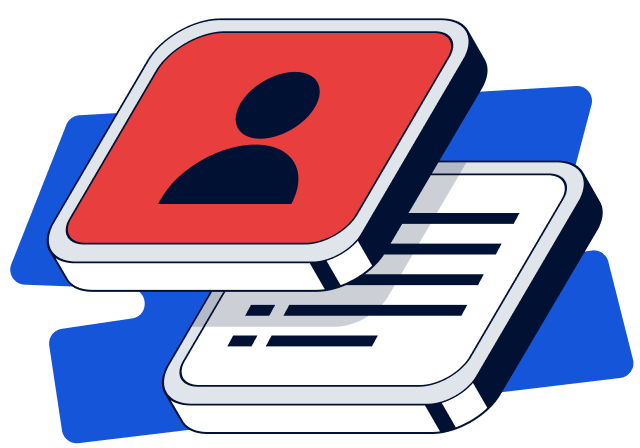- Sep 03, 2024
- 3 min read
Understanding the UN Sanctions List in 2024
Learn about the UN Sanctions List and why businesses need to consult it.
Sanctions are punitive measures taken by governments to deter financial crime and protect lawful citizens. They target individuals, businesses, and countries that pose a potential threat due to their involvement in criminal or terrorist activities.
The United Nations (UN) maintains a sanctions list (otherwise known as the United Nations Security Council Consolidated list or UNSC Consolidated List) which many businesses are legally obliged to check to avoid doing business with criminals, drug traffickers and money launderers. For example, under US implementing regulations (such as the President’s Executive Orders) and the Bank Secrecy Act, financial institutions are obliged to screen their clients against relevant sanctions lists, including the UNSC Consolidated list.
As of the latest update on August 23, 2024, the United Nations Security Council Consolidated List includes a total of 669 individuals and 193 entities subject to sanctions. This list is maintained to facilitate the implementation of measures imposed by the Security Council, which can include asset freezes, travel bans, and arms embargoes among other restrictions.
Onboarding a sanctioned client threatens the safety and compliance of a business. The consequences vary from security breaches, stolen funds, regulatory fines and even criminal penalties.
Read Sumsub’s article to learn more about UN sanctions and why businesses need to address them.
What are UN sanctions?
UN sanctions are restrictive measures imposed by the United Nations Security Council to enforce international law, maintain or restore peace and security, and compel states or entities to comply with its decisions.
UN sanctions are organized into a list which contains two main sections:
- for individuals
- for entities
Each entry is listed alphabetically and includes narrative summaries explaining the reasons for the sanctions, where available. UN sanctions are a crucial tool for addressing threats to international peace and security, and member states are obligated to enforce these measures within their jurisdictions.
The UN sanctions list is maintained by UN member states and organizations to eliminate terrorism, weapons proliferation, human rights violations, money laundering, deliberate destabilization of sovereign countries, and drug trafficking, etc. Depending on the situation, sanctions are applied to economic, cultural, trading, or diplomatic relationships with targeted countries.
UN sanction types
The United Nations Security Council (UNSC) has primary responsibility for the maintenance of international peace and security. It has 15 members (5 permanent members with veto powers—China, Russia, the US, France, and the UK—and 10 non-permanent members), and each member has one vote. Under the Charter of the United Nations, all member states are obligated to comply with Security Council decisions, including sanctions imposed by the body.
Security Council sanctions have taken on a number of different forms and goals. Currently there are four main types:
- Diplomatic
Termination of cooperation, breaking all diplomatic bounds such as country’s embassies, councils, and joint cultural events.
- Economic
Trade bans and barriers, such as increased fees in certain economic sectors like food, weapons, pharmaceuticals, etc.;
- Travel
Various restrictions on travel to a comprehensive ban for all nationals of a country, a ban on transit through territories of a country, a ban on travel to rebel-held territory within a country, to an aviation ban on all flights into or out of a country, etc.
- Sport
Sport sanctions prevent a country’s athletes from competing in international events.
Together, the above measure aim to:
- change undesirable behavior (e.g. if a regime violates human rights)
- limit opportunities for undesirable behavior
- prevent other countries from choosing an undesirable course of action.
Suggested read: Effective Sanctions Screening: Best Practices for Preventing Financial Crime
Which countries are currently on the UN sanctions list?
UN-sanctioned countries:
- Central African Republic
- Democratic Republic of Congo
- Eritrea
- Guinea-Bissau
- Iran
- Iraq
- Lebanon
- Libya
- Mali
- North Korea
- Somalia
- South Sudan
- Sudan
- Yemen.
UN-sanctioned organizations:
- Al-Qaeda
- ISIL (Islamic State of Iraq and the Levant, or Da’esh)
- Taliban.
See the rest of the organizations under UN sanctions on the UNSC website under the “Entities and other groups” tab.
The Consolidated United Nations Security Council Sanctions List is available on this website.
Why are UN sanctions important for businesses?
When a business onboards a sanctioned client, whether knowingly or unknowingly, it threatens safety and compliance. The consequences vary from security breaches, stolen funds, and regulatory fines to civil and criminal penalties.
Is there a solution? Yes—to be aware of all sanctions and process customers based on the UN restrictions they or their country face.
Suggested read: Understanding the FATF Black and Grey Lists in 2024
Using automated screening software to stay aware of sanctioned nationals
Manual checks are no longer helpful and scalable enough for onboarding high volumes of customers. Besides that, personal data can’t be processed as accurately as can be done with automation. Screening software has proven to be more efficient and precise when it comes to searching for data across watch lists. Accordingly, an automated KYC/AML solution can help you monitor individuals on global sanctions lists, including OFAC, UN, HMT, EU, and DFATdr.
FAQ
-
What is the United Nations Sanctions List?
The UN Sanctions List is a UN-issued list of countries and individuals that face economic, trade, or diplomatic limitations due to their criminal or peace-violating activity.
-
What are the different types of UN sanctions?
There are diplomatic (e.g. end of cooperation), economic (e.g. trade ban, tariffs), travel (e.g. travel ban, aviation ban), and sport (e.g. disqualification) sanctions.
-
Who enforces UN sanctions?
UN member states are responsible for implementing and enforcing sanctions at the national level.
-
Where can I learn more about UN sanctions?
Learn more about UN sanctions on the United Nations’ Official Website. Otherwise, read The Sumsuber for more insights on UN sanctions.




